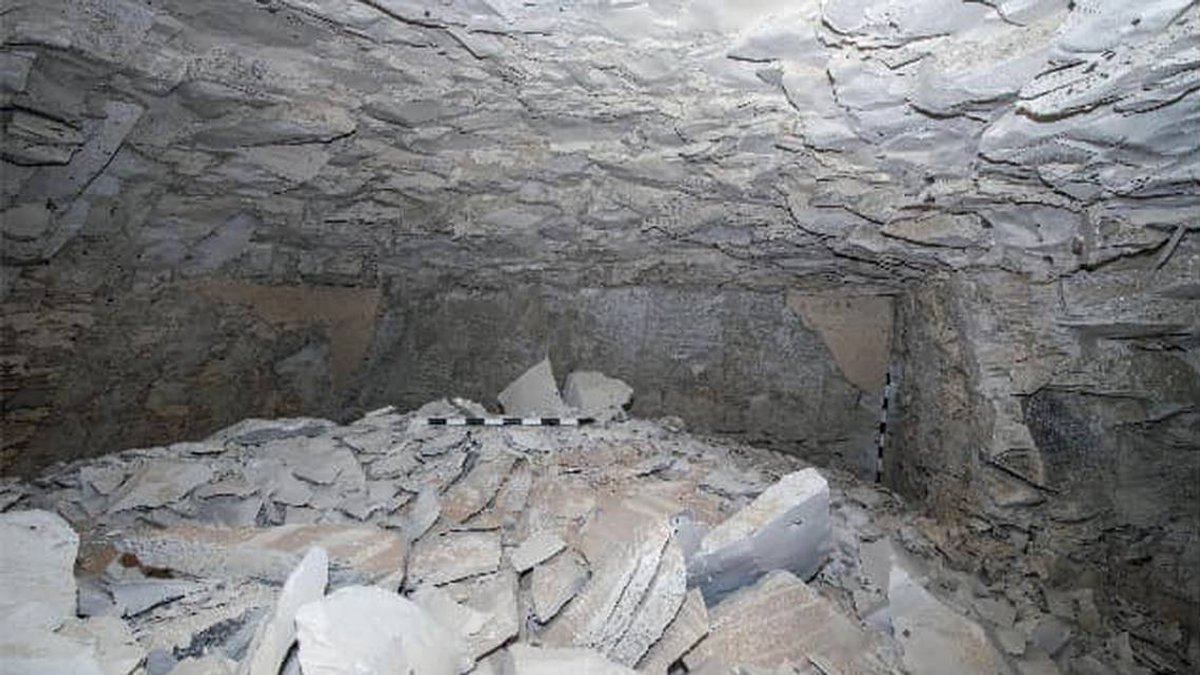Truth II was an ancestor of Tutankhamen himself, and his wife was Hatsaphut’s half -sister – her giant temple is in Luxor
Egypt seems to still hide countless treasures in its bowels … Egypt’s antiquities service announced on Wednesday that it has discovered its grave Truth II, the first royal tomb found after the discovery of his grave Tutankhamen in 1922.
The tomb, discovered near the Valley of the Kings in Luxor in southern Egypt, belonged to Tythomi II or Thutmissi II or Thoth, Hellenized Writing of Djehutymes, which means Thoth was born, 4th Pharaoh of the 18th Egyptian dynasty of Egypt almost 3,500 years ago. Truth II was an ancestor of Tutankhamen himself, and his wife was his half -sister Hatsheput.
Its giant funeral temple is located on the west bank of the Nile in Luxor a few kilometers from the point where the tomb of Tommon was found.
Although preliminary studies show that its content was transferred to antiquity – leaving the grave without a similar impressive sarcophagus such as Tutankhamam – the Ministry of Antiquities calls the finding ‘One of the most important archaeological discoveries of recent years. “
Preliminary studies indicate that the basic content of the tomb had been transferred to another location during the ancient Egyptian times due to a flood of the cemetery shortly after his death.
Despite the short duration of his reign, historical sources show that “King Thutmose II succeeded in suppressing many uprisings in Nubia and eliminated a race called Shasu in Sinai.”
The mummy of Tourmosi II (photo) discovered in 1881, But his original tomb was unknown until now.
Mohammed Ismail Halent, Secretary General of the Supreme Council of Antiquities (SCA), stressed to Al Jazeera that the 3,500 -year -old tomb is one of the most important findings in Egypt for decades.
“This is the first time that burial furniture has been discovered belonging to Tourmos II, as there are no such objects in museums around the world,” The Egyptian State Intelligence Service said.
Haled said that when archaeologists first found the entrance to the grave and its main passage almost three years ago, the group believed that it could belong to one of the wives of the kings, given its proximity to their grave The wives of the king and Hatsaphut, the only woman who reigned as Pharaoh in Egypt, and allegedly supervised the burial of him.
The difficulty of determining the ownership of the burial space was added his poor condition due to his exposure to floods, according to Mohammed Abdel Bandy, head of the Egyptian team who worked in the excavation. But objects discovered in the grave, including alabast jars fragments, brought inscriptions with the names of Tourosi II, and his main wife, providing definitive evidence of the ownership of the tomb.
![ARTEFACTS DISCovered in the Tomb, Including Fragments of Alabaster Jars Bearing Inscriptions with the Names of Thutmose II and His Principal Wife, Queen Hatshepsut, Provised Definitive Evidence of the Tomb's Ownership. [Egypt State Information Service]](https://www.aljazeera.com/wp-content/uploads/2025/02/2202518232215820-1739947784.jpg?w=618&resize=618%2C360&quality=80)
Source :Skai
I am Frederick Tuttle, who works in 247 News Agency as an author and mostly cover entertainment news. I have worked in this industry for 10 years and have gained a lot of experience. I am a very hard worker and always strive to get the best out of my work. I am also very passionate about my work and always try to keep up with the latest news and trends.











